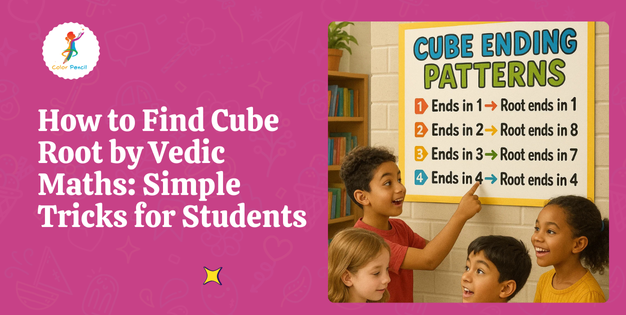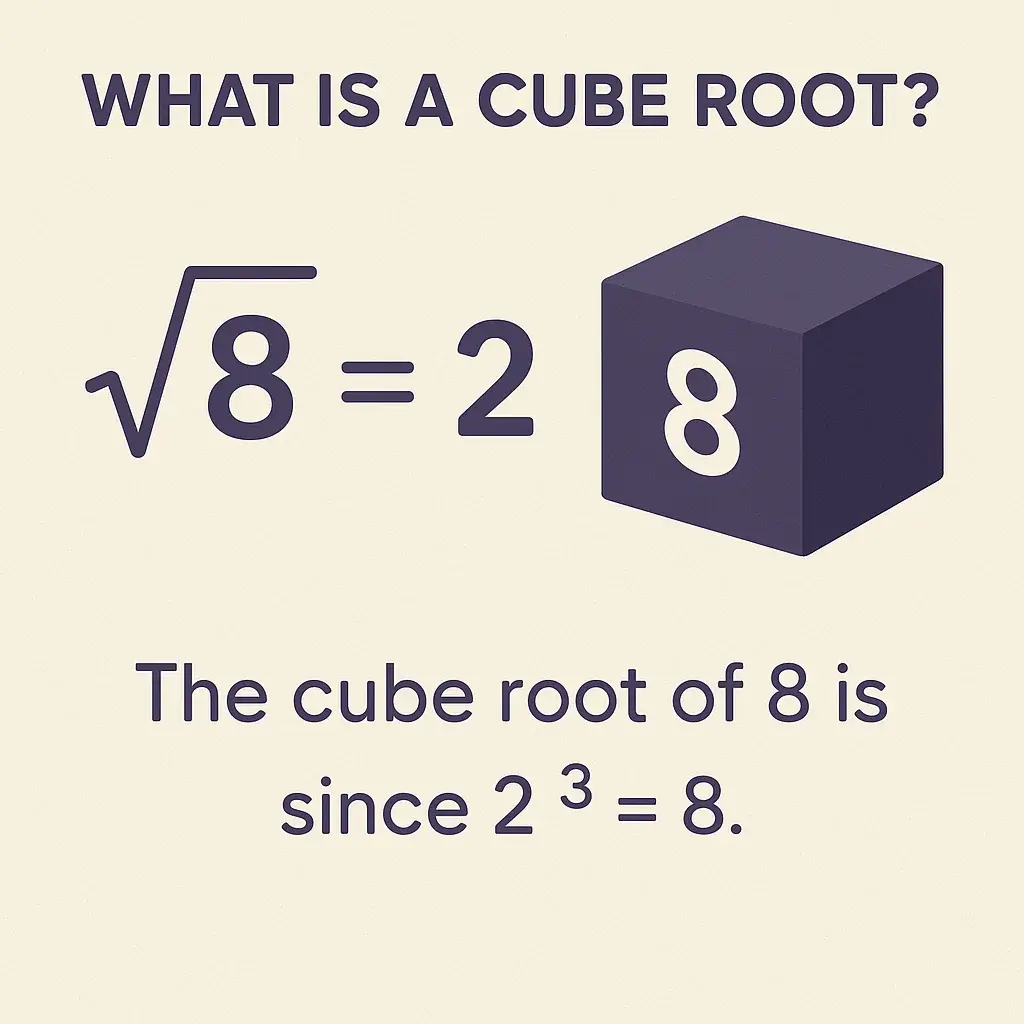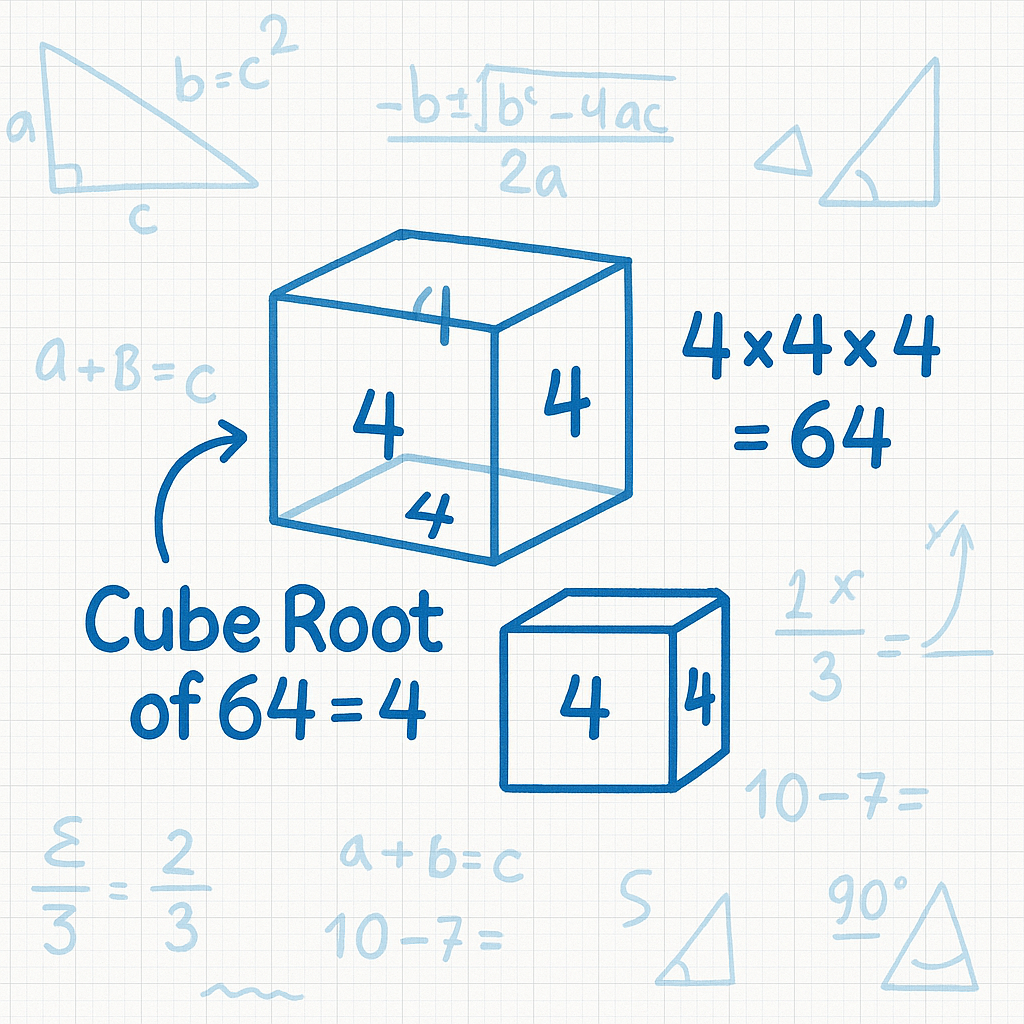
Top 10 Flashcard Combos for Holistic Toddler Learning
Did you know that up to 80% of a toddler’s brain develops in the first five years? As a parent, you’re likely eager to give

Cube roots often appear difficult, especially when dealing with large numbers. But with the techniques of Vedic Maths, you can learn to find cube roots of perfect cubes quickly and accurately—using simple logic and pattern recognition. This blog will walk you through the step-by-step method perfect for students who want to improve their mental math skills.
The cube root of a number is a value that, when multiplied by itself three times, gives the original number.
For example:

This method is especially useful for perfect cubes of 2-digit numbers (from 1 to 100). Here’s the simplified process:
Step 1: Look at the last digit
The last digit of 2744 is 4.
From cube ending patterns, if a number ends in 4, its cube root ends in 4. (Because 4³ = 64)
Step 2: Remove the last three digits
Remove the last three digits (744). You are left with 2.
Step 3: Find the largest cube less than or equal to this number
The largest cube less than or equal to 2 is 1³ = 1. So the first digit of the cube root is 1.
Step 4: Combine the two digits
Put together the first digit (1) and the units digit (4).
Answer: 14 (Check: 14 × 14 × 14 = 2744)
Example 1: Find the cube root of 4913
Example 2: Find the cube root of 5832
Example 3: Find the cube root of 6859
This technique can be practiced and perfected quickly because cube endings are consistent and easy to memorize.

📥Download the Practice Worksheet:
Click here to download the Cube Root Worksheet
📥Download the Detailed Answer Sheet:
Click here to download the Formatted Answer Key
This makes the Vedic approach ideal for school exams, competitive tests, and building mental calculation speed. Once your child masters cube roots, they can apply similar techniques to square roots. Learn how to find out square roots by Vedic Maths and enhance their mental math skills further.
For students who want to master more than just cube roots, we offer a comprehensive collection of Vedic Maths resources designed for different levels and age groups.
Browse the full product range:
Vedic Maths Learning Tools and Books
Our resources are trusted by educators and parents alike for building confidence in mathematics through a structured, step-by-step approach.
If cube roots fascinate your child, our Level 15 learning book is a perfect next step. It covers:
Explore the book here:
Vedic Math Learning Book – Level 15
This book is ideal for upper primary and middle school students who are ready to dive deeper into Vedic Maths and strengthen their understanding of key mathematical operations. Vedic Maths offers mental shortcuts and techniques that simplify complex math operations. Explore the differences between Abacus and Vedic Maths to understand which method might suit your child’s learning style.

Feeling Overwhelmed? Let’s Talk! Join Our Parent Forum and Get Expert Advice & Support!
This method is specifically designed for perfect cubes, particularly of 2-digit numbers. It won’t give accurate results for non-perfect cubes.
Memorizing cubes of numbers from 1 to 20 helps. Alternatively, try estimating the cube root and cube the result—if it matches the original number, it’s a perfect cube.
Yes, this Vedic Maths technique is excellent for saving time in mental math sections of competitive exams like Olympiads, NTSE, and school-level tests.
This method is ideal for students in grades 5 and up, once they are comfortable with basic multiplication and number patterns.
Once confident, students can explore topics like square roots using the duplex method, divisibility rules, LCM/HCF operations, and more—many of which are covered in our advanced Vedic Maths learning materials.